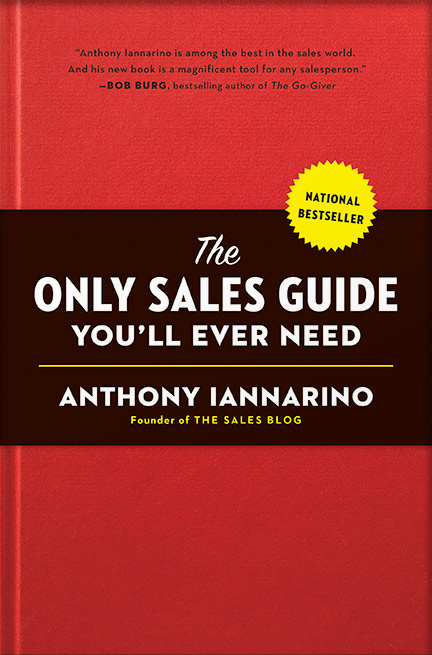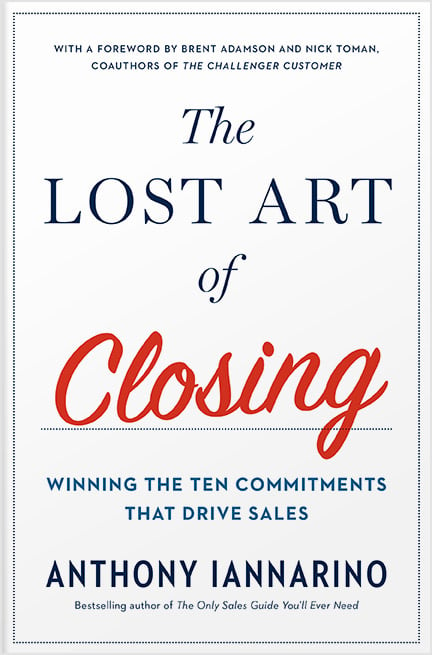Success in sales isn’t situational. I need offer no greater explanation than success itself is individual, a statement that is easily supported by the evidence. That said, here is the case for success in sales being individual, not situational.
General Truth 1: Everything Is the Same
Imagine the most successful sales organization. The salespeople who make up that sales force has a top twenty-percent, a middle sixty-percent, and a bottom twenty-percent. These salespeople work for the same company, sell the same thing to similar clients, and have the same prices. This sales force also shares the same competitors. Why do some do so much better than others, even when they have the same manager?
With so many factors being consistent across the sales force, why such huge variations in results? This eliminates any argument that sales success is situational.
General Truth 2: None of the Advantages
A small company with little money, a small footprint, and no real compelling differentiation competes against a larger, mature, professional competitor. The larger competitor has the advantage of size, scale, reputation, and all the things a salesperson might imagine as helpful in creating a preference and easily winning a client’s business. Despite what appear to be advantages, the smaller, scrappy company beats Goliath soundly in a deal for which they shouldn’t have even been considered.
With so many positives on the side of the larger competitor, how do they lose to a smaller competitor? If you believe that this situation should favor the larger company, you misunderstand success in sales.
General Truth 3: Your Approach Is a Variable
Two salespeople call on the same client. One of them had an approach that allowed them to create value is the interaction, helping their prospective clients understand their world, explore change, and better recognize what they need to do to move from their current state to a better future state. The second salesperson provided an experience that was not perceived as being helpful to the prospective client.
Even when two competitors are evenly matched, clients have little trouble deciding who they want to buy from and work with in the future.
Attributes In Your Control
The discipline necessary to nurture your dream clients, prospect daily, and follow up to acquire a meeting provides an advantage to the individual who commits themselves to the work. The consistent pursuit of new opportunities is individual.Learn Anthony's core strategies & tactics for sales success at any level with The Only Sales Guide You'll Ever Need
Your attitude is a personal decision, a choice of monumental significance to your results. Being positive, optimistic, future-oriented, and empowered provides an advantage that is unavailable to those who are cynical, pessimistic, and disempowered.
It isn’t easy to move from being self-oriented to other-oriented. Even though caring is a superpower, it takes time and energy to put other people first. You can choose to make it your goal to help others produce better results than they can without you, and in doing so, improve your individual success in sales.
There is something about competition that provides focus. There are consequences for losing in the great game of sales. Those who possess a competitive spirit work to win, providing them an advantage over those who believe and behave as if it is enough to show up to work.
Much of success in sales, or anything else, comes from being willing to figure out how to accomplish hard things, often things with no defined right answer. Success is more commonly found by the resourceful than those with resources. The advantage belongs to those who figure things out.
Of all the questions I am asked, the most frequent query is when one should give up on a prospective client. The reason some succeed where others fail is that they are pig-headed enough to persist when others give up. The rewards accrue to those who persist.
Professional sales is unlike other roles. You have more individual freedom than most positions, as well as greater accountability. When you find accountability and freedom together, initiative is what is required to succeed. Those who take action without being compelled by another person or external factor perform better than those who need to be prodded to do their work.
Variables In Skill
Those who are willing to learn to ask for and obtain commitments, linking together meetings that provide their prospect the conversations necessary to change, do better than those who don’t ask. They also generate better results than those who believe the buyer should drive the process and that their role makes them subservient.No more pushy sales tactics. The Lost Art of Closing shows you how to proactively lead your customer and close your sales. 
Salespeople who know how to trade value for the commitment of time, who have a firm conviction of their ability to help their prospects improve their results, and who persist in their pursuit find they accomplish their aim. What one person can learn, another person can also learn.
You need stories in sales. The ability to share stories about where your client is now and why compel change. Storytelling applied to a better future state and how to get there are also valuable to your dream clients. The ability to present ideas compellingly is a skill you can obtain, should you want to improve your results.
One salesperson may have a better ability to see their client’s challenge and its root cause more clearly than another salesperson. They can also ask better, more powerful, and more compelling questions. Diagnosis is a required individual skill.
There may not be a more critical skill to develop that will do more to improve your individual results in sales than business acumen and situational knowledge. You simply cannot be consultative without being able to offer your advice and your counsel. It takes time and effort, which makes it something with your control, should you want it.
Success in sales is individual. If you want to improve your results, it is within your power to do so. Like success in anything, it isn’t situational. It’s a decision.








.jpg?width=768&height=994&name=salescall-planner-ebook-v3-1-cover%20(1).jpg)


